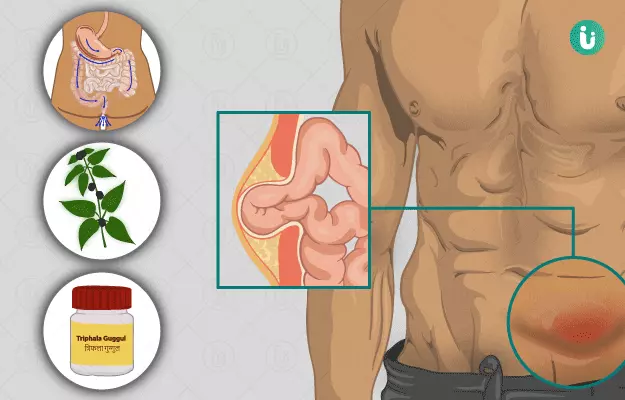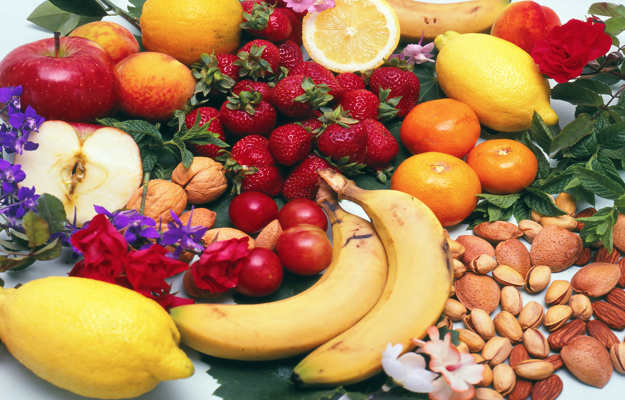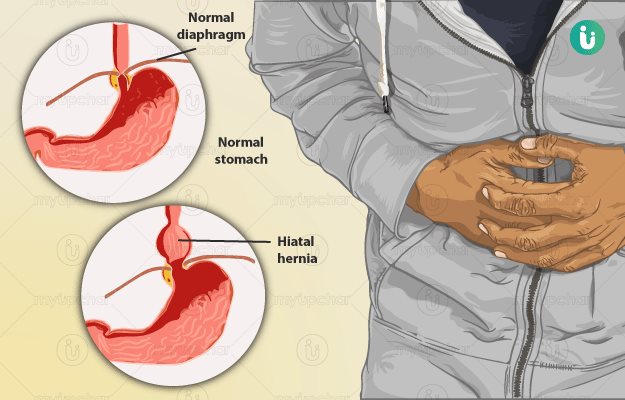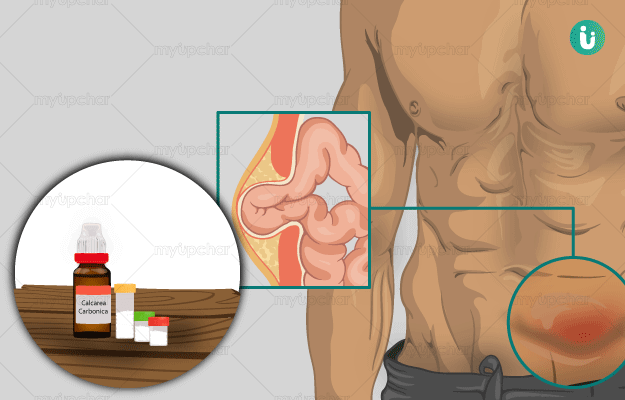Hernia is a lifestyle disease that occurs due to a bulging or protrusion of an organ or tissue through a defective opening in the surrounding walls. One of the most apparent characteristics of hernia is a visible lump or bulge on the affected region. Different types of hernias are categorised based on the part of the body affected, namely- inguinal, femoral, umbilical or hiatal hernia. Most commonly, a hernia is seen to affect the abdominal wall in the inguinal region. A weakened abdominal wall caused by swelling results in the abnormal protrusion of soft tissue or part of the intestine through the wall, especially on coughing, bending over or lifting heavy objects.
Ayurvedic doctors prescribe taila (oil) application and pinda sweda (hot fomentation) for the treatment of hernia. A combination of herbal medicine, dietary modifications, maintenance of optimal gut health along with stress reduction is recommended for the treatment of hernia. Herbs such as karanja (Indian beech), senna, kutaja (kurchi) and hingu (asafoetida) aid in relieving the symptoms of hernia. Apart from herbs, specific treatment procedures like virechana (purgation), snehana (oleation) and basti (medicated enema) are also beneficial in the treatment of hernia. Although immediate hospitalisation may not always be required, surgical intervention is essential for the complete cure of hernia. One should follow a proper diet in order to reduce chronic inflammation after surgery. This includes eating plant-based fibre, replacing trans fats with plant-based fats, eating small meals, and avoiding refined and processed food.















































